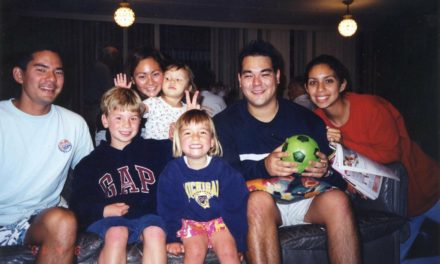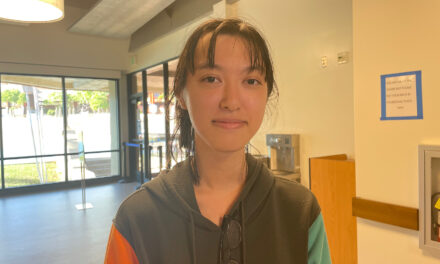“Ten Things I Hate About You” and “The Notebook” are two of the most popular romantic movies that people swoon over.
By Shawna Takaki | Staff Writer
[Editor’s note: Staff writer Shawna Takaki watches classic films for the first time and reviews them through the lens of today. Click here to see what she thought of “Titanic.”]
Call me a killjoy, but most romantic movies, or at least the ones that I’ve watched, have almost always left me dissatisfied. Over the years, I’ve heard a lot about films tackling the topic of romantic love as the main crux of the story, and among those, “Ten Things I Hate About You” and “The Notebook” are standouts in cultural impact and the staying power within our greater cultural consciousness.
Over the years, I’ve seen scenes such as Heath Ledger as Patrick in “Ten Things I Hate About You” singing a love song and running across the bleachers or the kiss in the rain from “The Notebook” referenced and reenacted, both lovingly and in parody. With both of these movies having anniversaries coming up, the former approaching its 25th anniversary and the latter its 20th, it seemed that this Valentine’s Day season was the right time to give both of the movies a first watch (yes, I had never seen them until a few weeks ago) and see what I think of the two.
Director Gil Junger’s film from 1999, “Ten Things I Hate About You,” focuses on a pair of sisters and their respective romantic lives, with the two female leads contrasting each other’s strengths and weaknesses. Where Bianca is emotionally vulnerable, shallow, immature and popularity-seeking, Kat is unpopular by choice, prickly and contrarian.
As a loose modern adaptation of Shakespeare’s “The Taming Of The Shrew,” the plot centers around the trope of the love interest initially lying. Bianca’s father doesn’t let her date unless her sister, Kat, dates someone first, a tough task seeing as Kat refuses to date. The film finds its strengths within a lot of its bubbly romantic comedy scenes, but neither of the romances the sisters find themselves in had me convinced.
Bianca’s character arc is about growing up, and finding what is truly best for her, rather than what she thinks is best for her. Initially, she wishes to date Joey, a superficial and egotistical popular boy who wishes only to sleep for her. She manipulates Cameron, a boy with a massive crush on her at first sight, into helping her get the dating ban lifted so she can date Joey, only to be repulsed by Joey and end up with Cameron. However, the romance between the two felt unearned for me. The characters barely had a connection, and while Bianca’s shallowness was resolved, Cameron also had a shallow attraction to Bianca, which was barely addressed and simply put aside for the sake of the happy ending.
What is, however, more central to the overall movie and loved by fans is the romance between Kat and Patrick, who is the archetypal bad boy. Their romance is based around a central lie, with Patrick being paid to date Kat. In the end, they fall in love, and Kat finds out what Patrick’s initial intentions were during a scene at the high school prom. The final wrapup for their relationship was dissatisfying. Kat is someone who is scared to be vulnerable due to being taken advantage of in the past, and I thought it would take more than Patrick simply gifting her a guitar to make her feel safe around him again. The movie itself sets a precedent for this behavior to continue, bringing the image in my head of Kat 10 years later, with an entire room just for housing every instrument she’s been gifted over the years.
“The Notebook” has a very different tone, being a more serious, melodramatic tale that spans many years, from the beginning of Noah and Allie’s story to the end. Director Nick Cassavetes adapts a novel written by Nicholas Sparks into a theatrical form. The main story takes place in the 1940s, framed through narration from the older Noah in modern times at a nursing home, as he attempts to help Allie remember him.
But what I kept second guessing was how truly romantic the film truly was. Despite its insistence on true love between the characters, I found Noah upsetting from the get-go. Noah, after being rejected multiple times, hangs from a Ferris wheel and threatens to jump if Allie doesn’t go on a date with him. It’s an intense, crazily obsessive act that guilt trips her into a date despite her initial refusal to date him. The bond between Noah and Allie felt like a romanticization of a toxic relationship. Their fights would become physical, the entire relationship more turbulent than stable, and with the dramatization of the typical Hollywood romance rearing its head.
In many depictions of romance, people prop up “true love” as the obsessive, conflict-ridden, insane type of relationship. The type where you’re “so in love that you act insane,” so to speak. The characters break up, and yet you can see the obsession of Noah continue, despite that. He writes letters every day, buys their dream house, and spending years fixing it up, with no guarantee Allie will return, or if she wants to return. While many people swooned over this, it felt like it was too much without Allie’s participation.
What the movie did do right, and was perhaps the core of the story for me, was love into old age. Romance between people of older age, and stories about it at all, tend to be rare, and I found it most compelling when the two of them were in their older age, settled (although I didn’t understand Noah’s insistence on making Allie remember, when it caused her clear pain) after a long time together. More so than the image of a frenzied young love with a kiss in the rain, what stuck with me was an older couple in their twilight years.
Both movies made me think about and better understand how the media depicts romance and what people are attracted to within their love stories. It was enlightening to see how romance was depicted, especially as a snapshot of the near past as both films approach major milestone anniversaries. While I didn’t buy the love stories of either movies, watching these movies that have stayed within our public consciousness helped me better understand what a romance movie is like.






